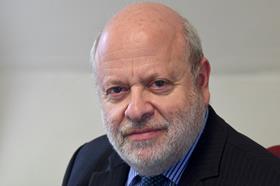Before lawyers discuss the government’s Bill of Rights Bill, it is always worth reminding ourselves that two solicitors were assassinated in the UK in recent decades, and neither has received the justice that they deserve.

Rosemary Nelson was murdered by a car bomb at her home in Lurgan, Northern Ireland in 1999. The inquiry into her death found no evidence of state collusion, but could not exclude the possibility that individual officials had helped the perpetrators. It found that state agencies had failed to protect her, and that public abuse and assault by RUC officers helped legitimise her as a target in the eyes of loyalist terrorists.
Pat Finucane’s case is more well-known, and more relevant to the Bill of Rights Bill. He was shot 14 times while having supper with his wife and three children in 1989. The former prime minister, David Cameron, apologised to the family in 2011 for the shocking levels of collusion between the state and the murderers. Despite this, and despite the promise of a public enquiry, and despite the Supreme Court in 2019 (echoing the European Court of Human Rights (ECtHR) in 2003) deciding that there had never been an enquiry into the death of Pat Finucane which satisfied Article 2 of the European Convention on Human Rights (ECHR), there has been no proper enquiry into his death. (Article 2 deals with the inadequate investigation into circumstances of death.)
This is all a long introduction to the government’s Bill of Rights Bill. These stories happen to concern members of our own profession who were murdered. They show that there are circumstances where international and enforceable standards are required in order to put pressure on our own government, when our own government is the body which is in the wrong. Where else can people turn in such circumstances? Or, if you prefer Latin, Quis custodiet ipsos custodes?
The Finucane family did not receive an order from either the ECtHR or the Supreme Court that a public enquiry should be held. The ECtHR felt that, among other things, the lapse of time would make such an enquiry unsatisfactory or inconclusive. But both courts, basing themselves on Article 2 of the ECHR, gave the family some basis on which to proceed against the UK government.
The Bill of Rights Bill does not propose that we leave the ECHR, but its impact may lead to the same conclusion. For instance, there will no longer be a duty on courts to interpret legislation compatibly with ECHR rights. The bill will remove the duty on courts to take account of ECtHR jurisprudence. The ability to act against public authorities would be weakened – for instance, there would be a new permission stage, requiring claimants to prove they have suffered (or would suffer) significant disadvantage from a particular act, and the bill would prohibit courts from finding that a public body owes a positive obligation.
Given that our domestic law would begin to diverge from ECHR law, it is difficult to predict how the Council of Europe, the custodian of the ECHR and home of the ECtHR, would react. But our departure from both does not seem an impossibility – and we know that it is a desired end by certain sections of the Conservative Party.
None of this is without consequences. Many have spoken about the potential damage to our international reputation if we were to leave the Council of Europe. But there is a specific practical example, which again applies to our own profession.
The Council of Bars and Law Societies of Europe (CCBE) is the organisation which brings together all European lawyers. We have already changed from full member to affiliate status because of Brexit, but we remain members, able to contribute and learn.
One of the conditions of CCBE membership is that the country from which the member comes must be a member of the Council of Europe. If not, a decision has to be taken either to suspend or exclude that member. A decision is shortly to be made about the Russian legal profession, after Russia was excluded as a member of the Council of Europe following its invasion of Ukraine. It would be shameful if the UK was the next up for consideration as to CCBE suspension or expulsion.
I have deliberately used examples taken from our profession to show the potential impact of the Bill of Rights Bill, should it become law. (Some expect that it will never get that far before the next election, having already been ‘paused’ by the Truss government, before being reintroduced when the current lord chancellor returned to office.)
We are a privileged section of society. We know our own rights well and can more easily take steps to enforce them than others can. We need to be vigilant to protect existing safeguards.
Jonathan Goldsmith is Law Society Council member for EU & International, chair of the Law Society’s Policy & Regulatory Affairs Committee and a member of its board. All views expressed are personal and are not made in his capacity as a Law Society Council member, nor on behalf of the Law Society
This article is now closed for comment.































5 Readers' comments